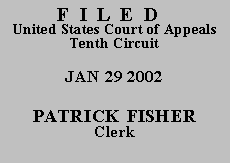

|
UNITED STATES OF AMERICA, |
|
Before HENRY, BRISCOE, and MURPHY, Circuit Judges.
Defendant Andres Nava-Hernandez pleaded guilty to illegal reentry following deportation, in violation of 8 U.S.C. § 1326(a). Violation of this statute carries a maximum prison sentence of two years, but § 1326(b)(2) provides for an enhanced prison term of up to twenty years for those who reenter the country illegally and have a previous aggravated felony conviction. On the same day that Nava-Hernandez was indicted for violating § 1326, the United States filed a Notice of Sentencing Enhancement (the "Notice"). The Notice advised Nava-Hernandez that he was subject to the enhanced penalties set out in § 1326(b) based on a prior aggravated felony conviction. In a written statement made in advance of his guilty plea, Nava-Hernandez acknowledged that the maximum term of imprisonment he was facing was twenty years. Furthermore, in calculating the appropriate sentence, the Presentence Report increased Nava-Hernandez's offense level by sixteen points pursuant to United States Sentencing Guideline § 2L1.2(b)(1)(A) based on his prior aggravated felony. Nava-Hernandez did not lodge any objections to the Presentence Report. The district court ultimately sentenced Nava-Hernandez to a term of imprisonment of seventy months.
On appeal, Nava-Hernandez relies on Apprendi v. New Jersey, 530 U.S. 466 (2000), to argue that his sentence exceeds the maximum penalty for the offense because the fact of his prior conviction was not submitted to a jury or proved beyond a reasonable doubt. Apprendi, however, acknowledged that a narrow exception to this general rule, established in Almendarez-Torres v. United States, 523 U.S. 224 (1998), applies when the fact used to enhance the sentence is a prior conviction. Apprendi, 530 U.S. at 490. Relying on Almendarez-Torres, this court has held that an indictment which does not contain a separate charge for prior conviction of an aggravated felony does not violate constitutional rights. United States v. Martinez-Villalva, 232 F.3d 1329, 1332 (10th Cir. 2000). This panel is bound by Almendarez-Torres and therefore rejects Nava-Hernandez's arguments.
Nava-Hernandez concedes that the relief he seeks is foreclosed by Almendarez-Torres and Martinez-Villalva, but seeks to preserve his argument for review by the Supreme Court in the event that Almendarez-Torres is overruled. He has done so. See McKnight v. Gen. Motors Corp., 511 U.S. 659, 660 (1994). "Nevertheless, Almendarez-Torres has not been overruled and directly controls our decision in this case." See United States v. Dorris, 236 F.3d 582, 587 (10th Cir. 2000). Accordingly, the sentence imposed by the United States District Court for the District of Utah is AFFIRMED.
ENTERED FOR THE COURT
Michael R. Murphy
Circuit Judge
*. This order and judgment is not binding precedent, except under the doctrines of law of the case, res judicata and collateral estoppel. The court generally disfavors the citation of orders and judgments; nevertheless, an order and judgment may be cited under the terms and conditions of 10th Cir. R. 36.3.